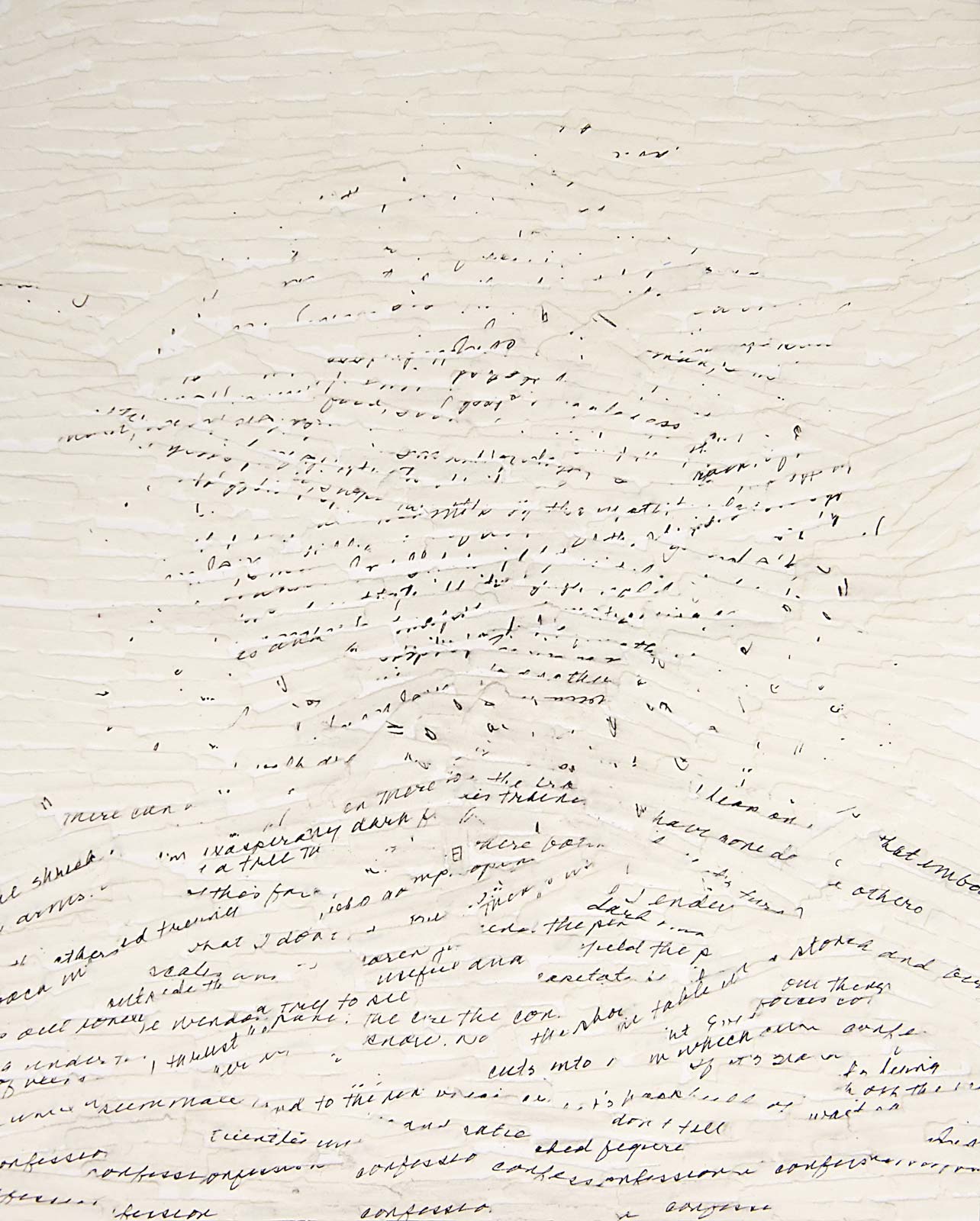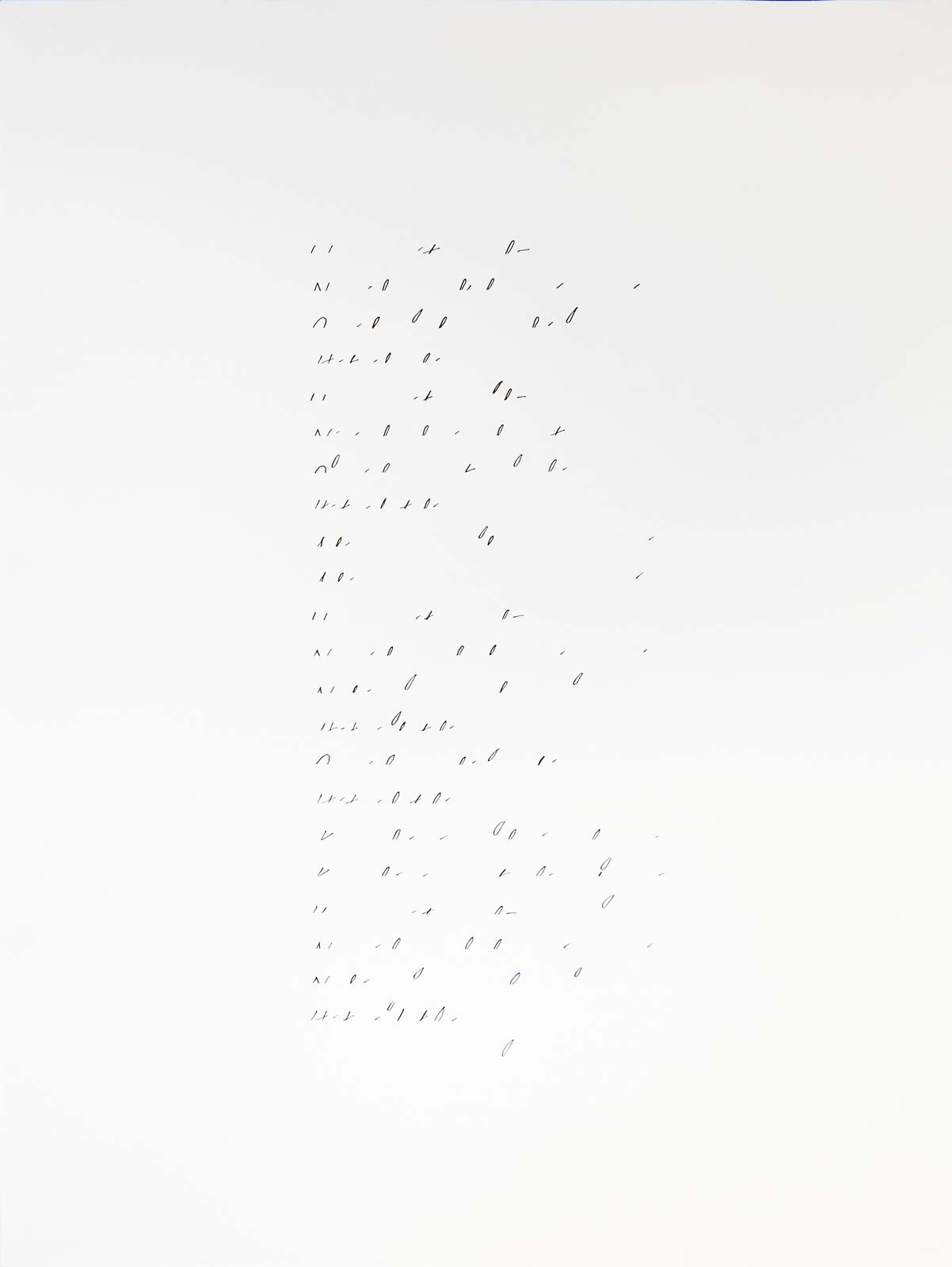Notes
“Confession” is a shredded re-composition of a hand-copied version of “Confession” by Minoru Yoshioka, from the book Lilac Garden: Poems of Minoru Yoshioka, translated from the Japanese by Hiroaki Sato.
Yoshioka, born in 1919 … is often held up as a ‘representative’ poet who mirrors the clutter and nervous confusion said to be so typical of the postwar Japanese psyche. (J. Thomas Rimer, 1975.)
In Yoshioka’s words, “Poetry is planned to be something visible, something you can touch, that has weight, that occupies space—that has actuality.” (“What Is the Way That I Write Poetry?—” “watashi no sakushiho” from Yoshioka Minoru shishū, No. 14 in the series Gendaishi bunko published by Shichosha, Tokyo, p. 101.)
“Ue o Muite Arukō” is the fragmented lyrics of a song released in Japan in 1961, written by Rokusuke Ei, composed by Hachidai Nakamura, and most-famously sung by Kyu Sakamoto.
The title lyrics mean, “I look up as I walk,” and the lyrics of the song were interpreted by many as a story of brokenhearted love. However, some say Ei surreptitiously wrote the song to relay his frustration with the failed efforts of a student demonstration against the continued U.S. military presence in postwar Japan.
“Ue o Muite Arukō” was released in the US and the UK in 1963 and is the only Japanese-language song to have reached the top charts in the United States. At its release in the West, the title was changed to “Sukiyaki,” because at that time, sukiyaki was one of the few symbols of Japan to which Westerners could relate. This ridiculous title is completely irrelevant to Ei’s song and has been compared to a hypothetical renaming of “Moon River” in Japan to “Beef Stew.” As a blonde-haired, blue-eyed Southern California girl, hearing this song as a young teen in the 60s, I fell in love with Japan but didn’t yet know it.

